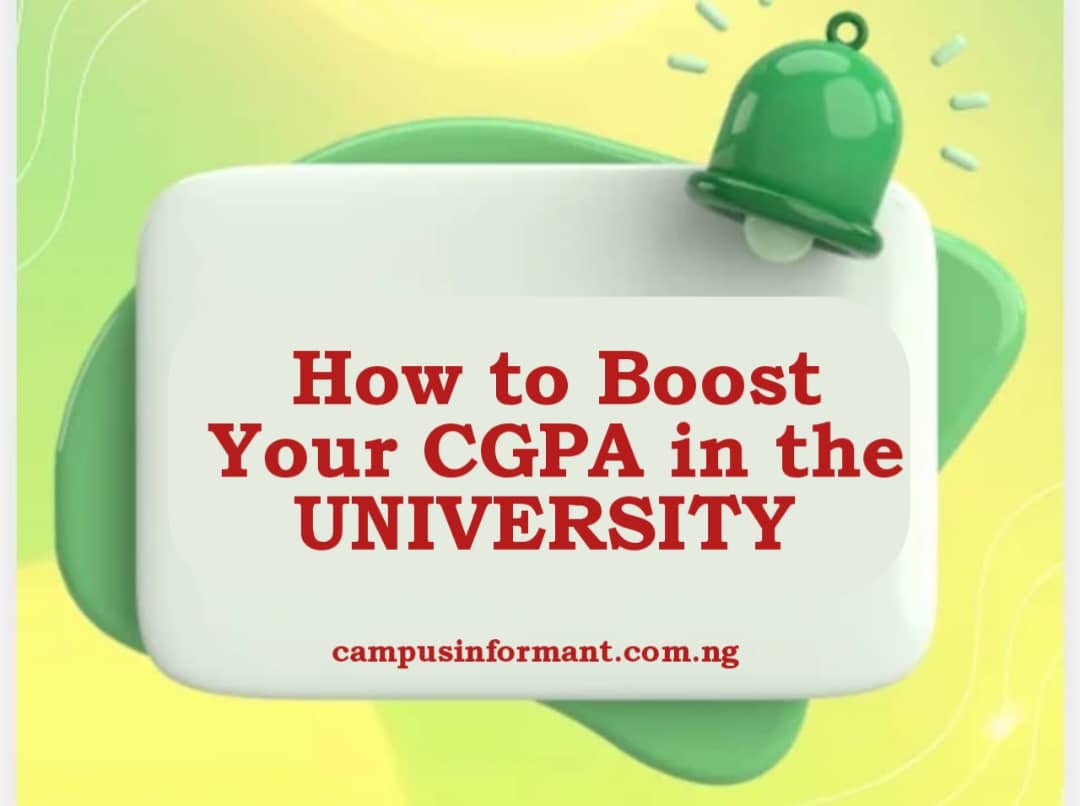How to Boost Your CGPA in the University: If you’re in the university, one thing you should never ignore is your CGPA (Cumulative Grade Point Average). It’s the score that tells you how well you’re performing academically — and it’s the same score employers and postgraduate schools will look at later.
So, if your CGPA isn’t looking as good as you want, it’s time to work on it. The earlier you take action, the better your chances of graduating with an impressive result.
Here are 10 practical tips to help you boost your CGPA and get back on track.
1. Identify Your Weak Areas and Fix Them
Don’t just focus on courses you like. Check your results and pinpoint the subjects where you’re struggling. Once you know them, put in extra effort — read more, attend tutorials, ask questions in class, and practice past questions.
Most times, students conclude they can’t do well in certain courses. That’s wrong. With the right strategy, you can improve.
2. Pay Attention to Courses with Big Credit Loads
Some courses carry more credit units than others. An “A” or “B” in these courses will give your CGPA a big boost. So, focus on them and aim for high grades.
3. Always Aim High
Stop settling for just “pass marks.” Even if you passed, a low grade will pull down your CGPA. Set your target for high scores in every exam, and work hard to reach it.
4. Take Advantage of Your Early Years
Your first year in school is often easier because the courses are less complex. Use this opportunity to build a strong CGPA foundation. If you start strong, it’s easier to maintain it in later years.
5. Take Assessments Seriously
Assignments, tests, and continuous assessments might look small, but they add up. A good assessment score can save you in case your exam didn’t go perfectly.
6. Don’t Ignore Carryover Courses
If you have a carryover, face it head-on. Submit all assignments, attend classes, and prepare well for the exams. Also, confirm your scores are correctly recorded after the results are released.
7. Be Serious with All Courses
Avoid being selective with your effort. Every course matters, even the ones you think are “less important.” A poor grade in a minor course can still drop your CGPA.
8. Work Harder Than Before
If your CGPA is low, it means what you’ve been doing isn’t enough. Increase your study time, get extra materials, and cover at least 80% of the course content before exams.
9. Avoid Distractions
Limit activities that eat into your study time — excessive chatting, late-night parties, endless football matches, etc. Keep them for your free time, not when you should be reading.
10. Stay Consistent and Determined
Boosting your CGPA is not a one-day job. It takes consistency, focus, and discipline. Keep working at it every semester.
Recommended Articles
- How to Calculate CGPA and Achieve first Class Degree in Nigerian Universities
- How to Come Out With a First Class at the University of Nigeria Nsukka (UNN)
- Top 10 Most Beautiful Universities in Nigeria (2025 Update)
Final Word
Don’t wait until your final year to start worrying about your CGPA. Start now, track your progress, fix your weaknesses, and stay committed. With hard work and determination, you can graduate with the results you’ve always wanted.
You can join us in our WhatsApp channel when you click here

